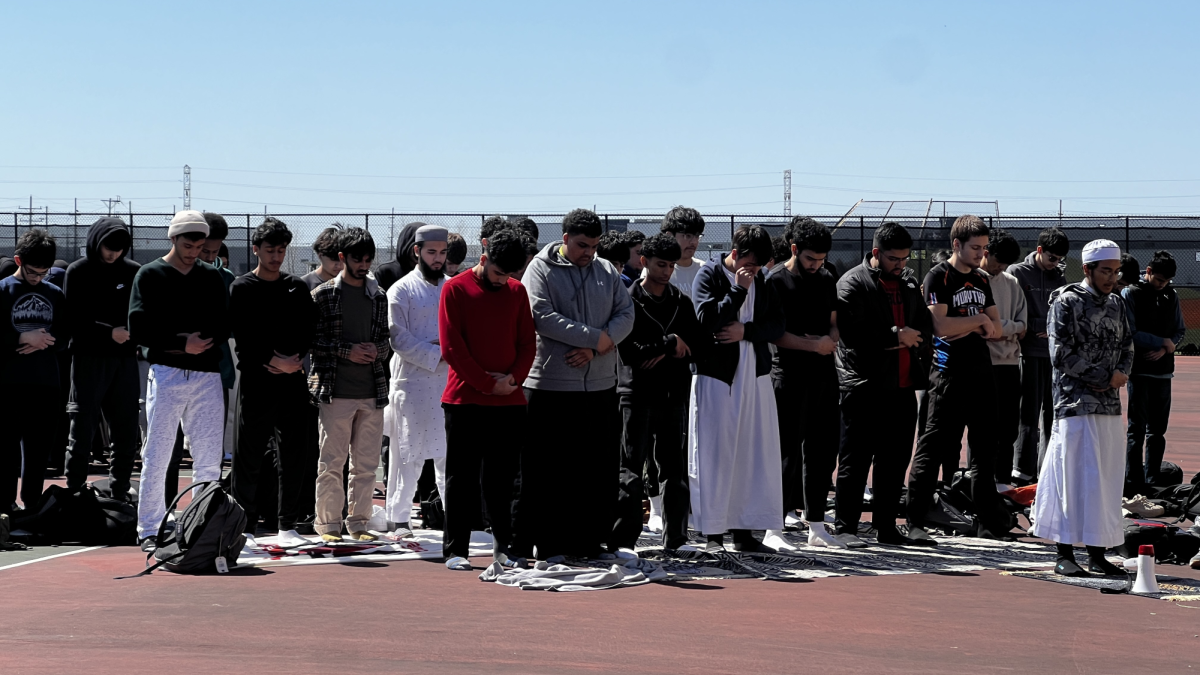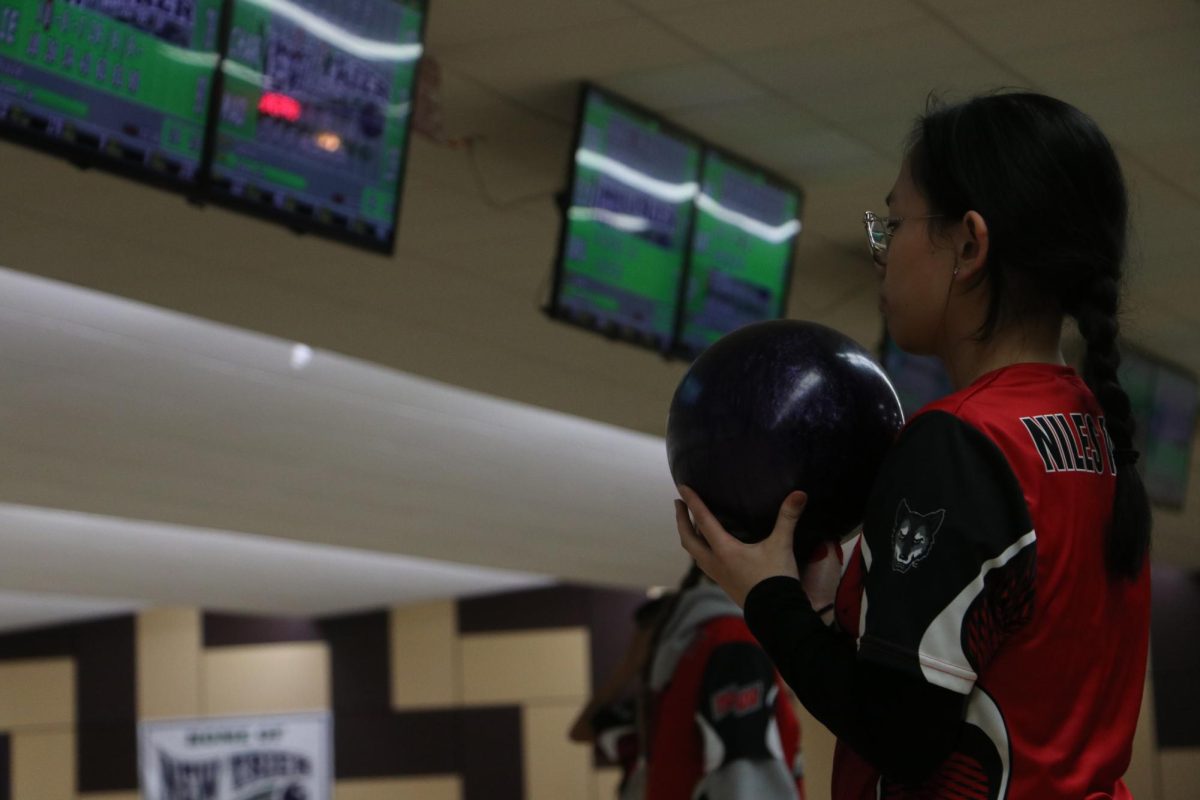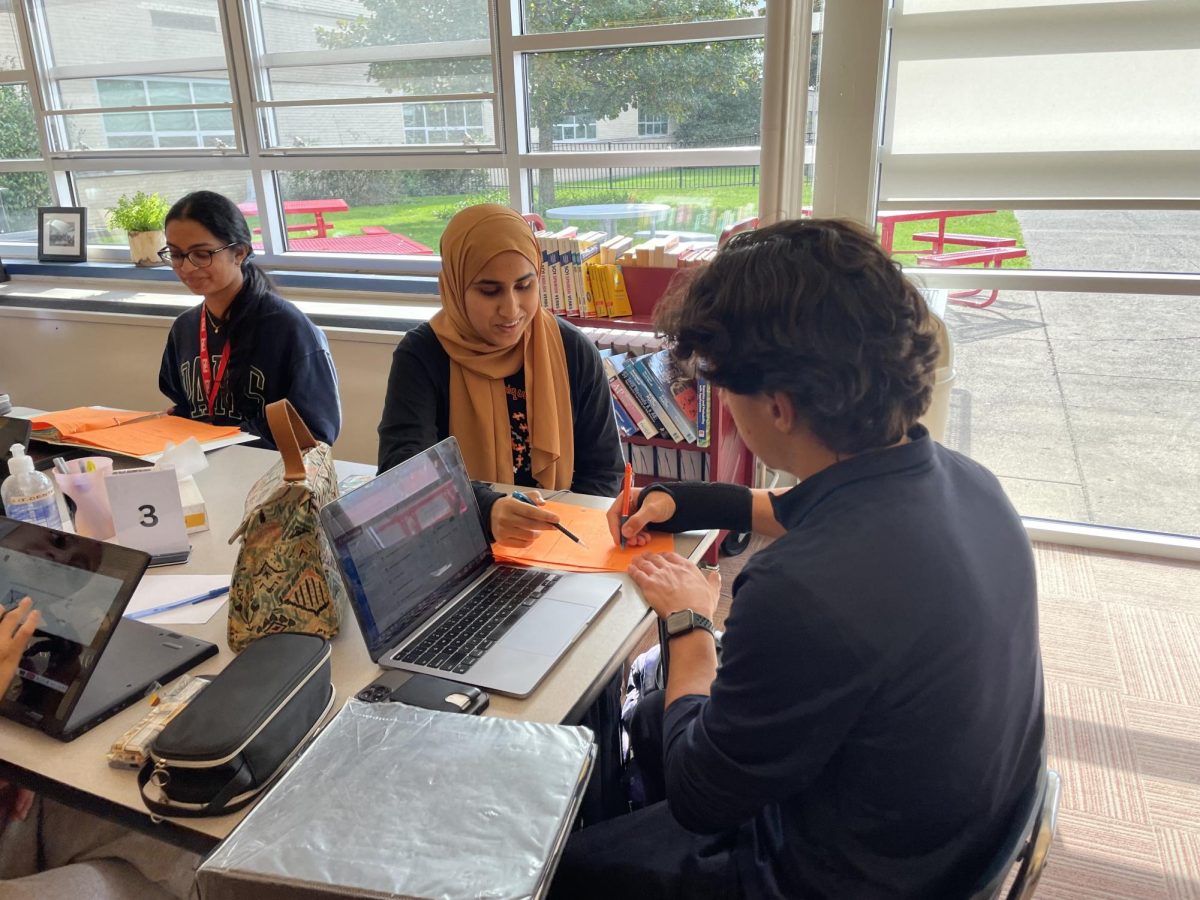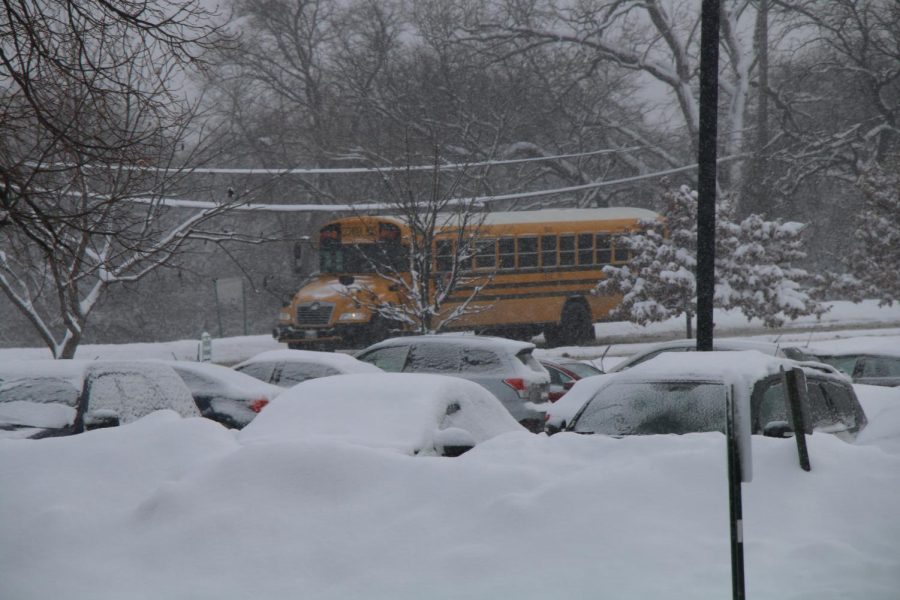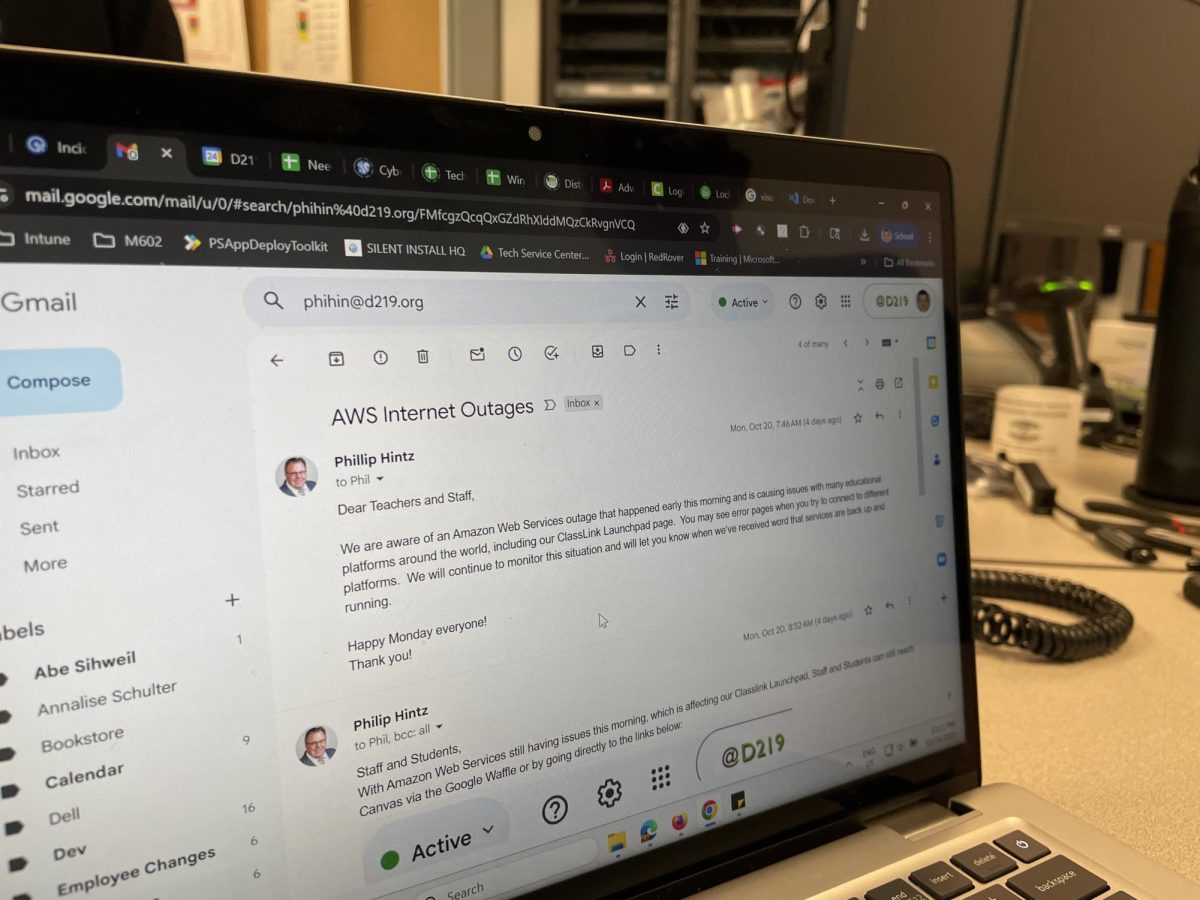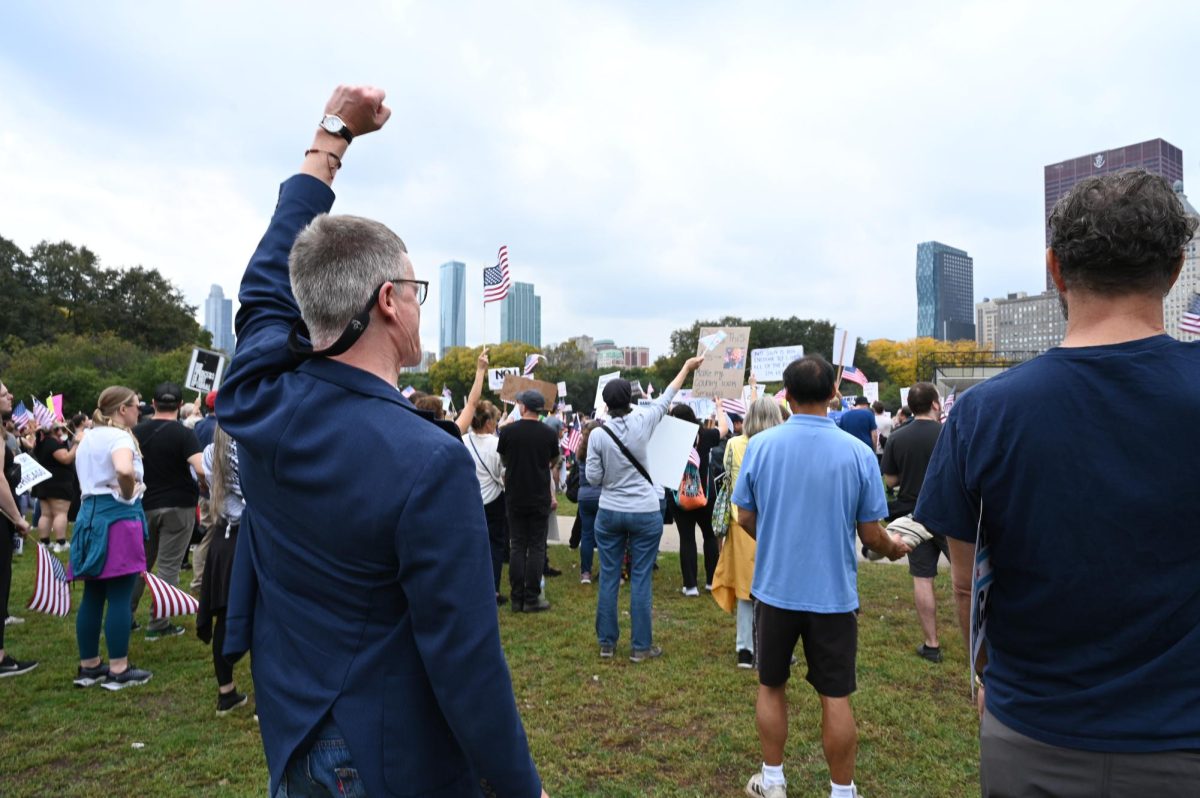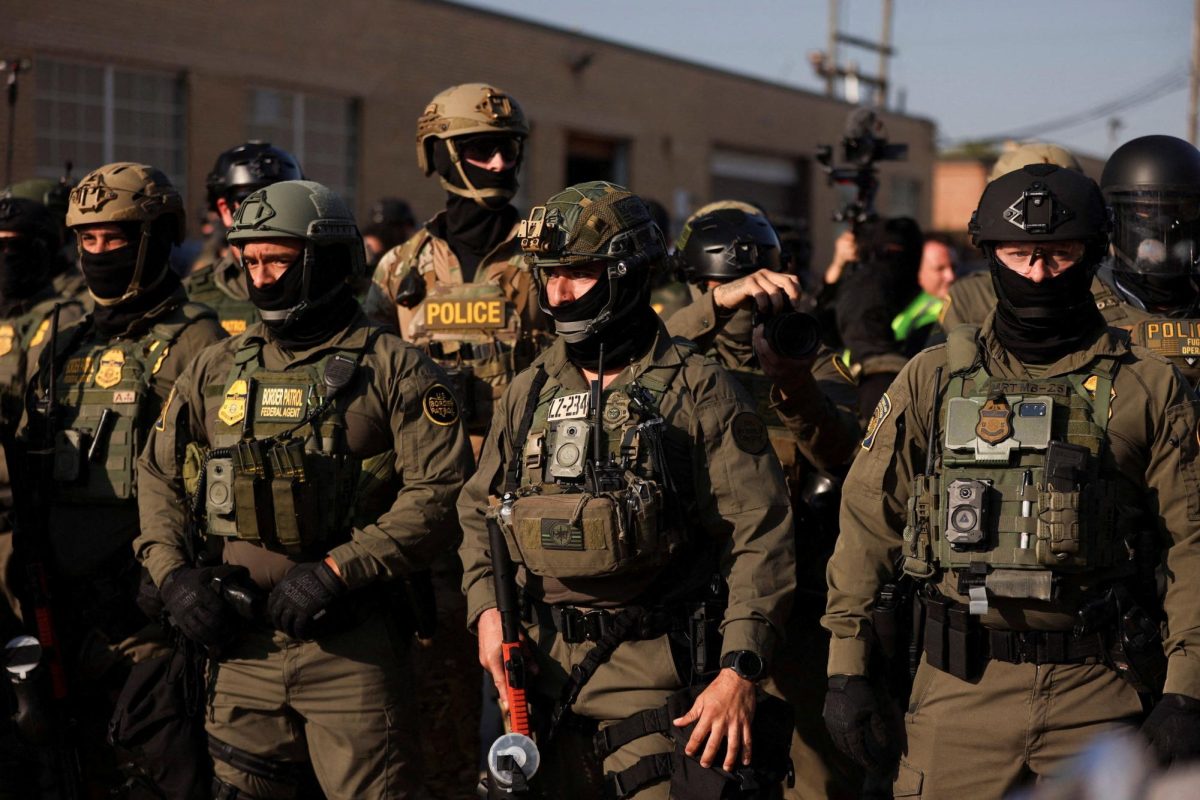In an effort to address Islamophobia affecting Muslim students at Niles West, Muslim Student Association (MSA) held an activity inviting students to share their experiences of Islamophobia and what they wish others knew about Islam anonymously. At the gathering on Sep. 13th, students shared messages including “I’m not a terrorist just because I’m Muslim” and “My hijab doesn’t mean I’m oppressed; I choose to wear it.”
Instances of Islamophobia have been noted among the Niles West community. Around the anniversary of the 9/11 attacks this year, there was an attack on the Muslim-owned Redzovic Jiu Jitsu business, which is owned by the family of two Niles West students. The Chicago Police Department is currently investigating the attack as a hate crime.
Junior Hasan Hedayat shared his experiences with Islamophobia in the school community. One of the times he encountered Islamophobia was while performing Wudu (ablution), a religious practice of washing oneself before praying.
“I was playing charades and I was thinking about what to do and then someone randomly guessed Bin Laden. Another time I was making Wudu in the bathroom and there were a bunch of guys who were just hanging out in the bathroom. One of them freaked out and then they took off their jacket and hit me with it. I didn’t really have time to do anything because I was rushing to theater class,” Hedayat said.
Christina Kokoris, social studies teacher and co-sponsor of MSA has witnessed several instances of Islamophobic microaggressions in the classroom, including unwelcome touching and comments toward girls wearing a hijab, a religious head-covering.
“It happens so often. I’ve had female students tell me that boys have walked up to them and told them to take off their hijabs before at school, in the hallways. I’ve had kids call each other terrorists in class. In my first year here, a student kept calling a girl sharia, like sharia law and he thought that I didn’t know what that meant or something… It’s crazy and it’s sad that it’s in a school that has a pretty huge Muslim population compared to other schools in the area and people think that because of that you can say it,” Kokoris said.
Ainee Fatima, an English teacher, MSA co-sponsor and class of 2010 alum has experienced Islamophobia at West both as a student and as a teacher.
“I remember the first day I wore a hijab, my English teacher made a really offhand comment like ‘What’s that thing on your head?’ Even though at the time there were so many hijabis, he just acted like he didn’t know what it was, and that was really disheartening because I started [wearing it] at the end of the year, so he knew who I was the whole year and started treating me differently at the end of the year. I had teachers, adult teachers treating me weird once I started wearing the hijab as if I was a completely different person. Even some of the microaggressions here as an adult, I think me and Mrs. [Amina] Hasan are some of the only hijabi staff members here, and we’ve gotten confused for each other. We don’t even look alike. We just both wear hijab and that in itself is a racist microaggression,” Fatima said.
Now that Fatima is back at Niles West as a co-sponsor and teacher, she helps support students affected by Islamophobia, as she did during the recent MSA activity.
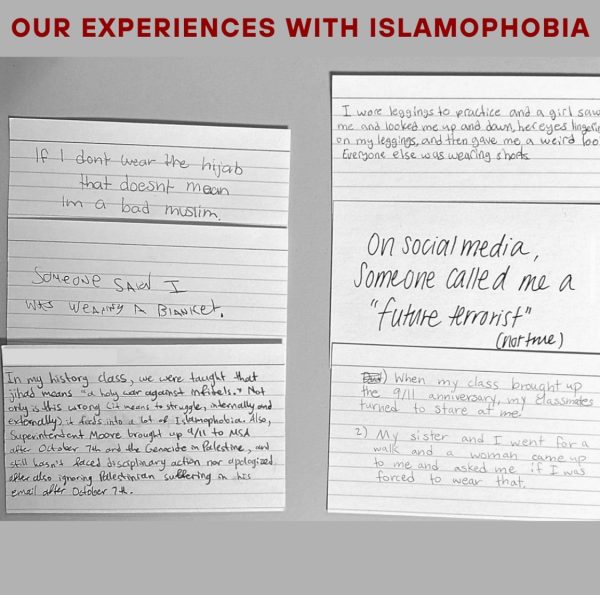
“I wanted to just give a space for Muslim students to talk about their experiences without any judgment because I feel like one, teachers don’t acknowledge how much 9/11 affected Muslims and the aftermath and they always focus on remembering it when now your generation [of current students] wasn’t even alive for the actual event so what are you remembering? But you are experiencing the aftereffects of it, you guys are still experiencing the racism, still experiencing the hardships, and we’re still dealing with the aftereffects to this day politically, economically, and geographically,” Fatima said.
The MSA activity also addressed the issue of underreporting of Islamophobia among Muslim students. Deputy Superintendent Roszena Haskins attended the meeting to explain the importance of reporting incidents when they occur.
“I feel like a lot of kids don’t recognize how important reporting is. I had a student tell me someone called them a terrorist in the hallway, but then never reported it. It wasn’t random. They called him that because he was wearing a certain religious garment. We are tax-paying citizens and we should use all these resources that are given to us, and that’s reporting to our school…I really like that our superintendent and our admin came and told us what resources we have available to report it. Back when I was here, we didn’t have that. No one would have taken us seriously if we reported anything,” Fatima said.
Hedayat believes that more steps need to be taken by the school administration to dispel Islamophobia and hatred in school.
“I think that especially because Islamophobia is becoming more present in the US and the world, it would be helpful to include Islamophobia awareness training and anti-racism training among students. Because, you know, it may not solve everything, but I think just simply recognizing the fact that there is Islamophobia at Niles West and that it’s a very real problem,” Hedayat said.
Nationally, Islamophobia is a prevalent issue in schools around the country and has been linked to multiple adverse health impacts such as increased stress and anxiety and lower self-esteem. Islamophobia can manifest itself through microaggressions, acts of violence, structural stigma and more. The Council on American-Islamic Relations (CAIR), a Muslim civil rights and advocacy group, reports that incidents of Islamophobia increased by 419% in 2023 from the previous year. These incidents included the murder of the six-year-old Palestinian American boy Wadea Al-Fayoume, whose landlord stabbed him 26 times after yelling “You Muslims must die” mid-October of last year. CAIR notes that “this surge in anti-Muslim hate crimes is likely directly related to the use or promotion of Islamophobic and anti-Palestinian rhetoric by American political leaders and media executives to justify the genocide against Palestinians in Gaza.”
Fatima believes that District 219 should hire staff that are more Muslim teachers in order to more accurately reflect the student body.
“[District 219] needs to do better with hiring more teachers of color and more teachers that represent the student body because I’m one of the only Muslim teachers here,” Fatima said.
If a student experiences Islamophobia, they are encouraged to report it to a trusted staff member or dean. The incident will be addressed with an investigation by school administration and law enforcement if necessary and treated as a type of hate speech. While religion is a protected class in Illinois, hate speech incident reports are not categorized based on Islamophobia or religious discrimination. Dean David Hawk explained the procedure deans follow when an instance of Islamophobia is reported to them.
“In terms of the response from the Dean’s office, there are two elements to it. There’s the punitive aspect where there are consequences and what those consequences look like can vary depending on how much of a disruption that student’s behavior caused or if it causes a threat to safety. Those are the two big things we as deans consider. In addition to that though, there’s also an educational piece which is hard to do because we’re trying to have this person or this group of people understand that their behavior is causing harm and that takes time. But that element of our response and the school’s response can’t be ignored or else that person or those people are going to continue doing those things because they think it’s okay,” Hawk.
If a student experiences Islamophobia they should report it as soon as it happens. Late reports are more difficult to investigate and therefore may not result in swift disciplinary action.
“At West, our goal is to foster a respectful environment where all students feel safe, valued and have a sense of belonging…Islamophobia, like all forms of discrimination, is not tolerated in our building. When appropriate, we also incorporate restorative practices in conjunction with disciplinary consequences to address incidents,” Assistant Principal Steve Parnther said.


